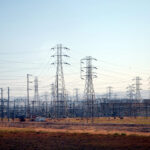The emotions of nuclear experts
By Baruch Fischhoff | April 11, 2011
Thirty years ago, I had the good fortune to visit with Stephen Cotgrove, whose 1982 book Catastrophe or Cornucopia: The Environment, Politics and the Future was a pioneering analysis of emerging controversies over the risks and benefits of modern technologies. Among other things, he told me that, “One of the hardest things is convincing engineers that they have emotions.” Engineers struggle to understand their own responses to stressful situations, Cotgrove told me, and tend to dismiss laypeople’s questions as irrational, rather than as legitimate concerns that deserve respectful answers.
The tragic March 11 earthquake and tsunami have created emotional times for the nuclear power industry’s technical experts, whether engineers, analysts, or operators. Some are working under difficult, even dangerous, conditions to contain the damage. Others are putting in long hours devising and analyzing solutions to these unprecedented (and, some claim, unanticipated) problems. As people who depend on the industry for their livelihoods, these experts must wonder what the future holds. Their concerns must engage their emotions, as well as their intellects. Indeed, given the stakes, the absence of emotion would raise more eyebrows than its presence. In order to secure the fairest possible judgment of their technology, nuclear experts need to understand the emotions triggered by the Fukushima crisis.
We have no direct empirical studies of the emotions experienced by technical experts in the nuclear industry. As the American sociologist C. Wright Mills noted, it is hard to gain the access needed to study members of elite groups. However, we do have many studies of lay emotions. The patterns that those studies describe are so deeply rooted in the human condition that there is every reason to assume that they apply to nuclear experts, who are “only human” and facing stresses beyond their full control.
Emotions work in many ways. On the good side, they can alert us to cues that we might otherwise miss (such as danger signals) and keep us from making unwise commitments (for example, mistakenly thinking that we are bold investors who can psychologically withstand any losses). On the bad side, emotions can cloud our judgment. Sometimes those effects are clear — and we know that we are not thinking straight. Sometimes the effects are hidden from us — and we unwittingly interpret the world in distorted ways. The four examples that follow suggest how emotions might affect nuclear experts responding to the stresses of today’s crisis. Reflecting on these possibilities could help experts to identify the human elements within their own responses — and to engage the public, rather than alienating it.
Anger. It must be extraordinarily frustrating to invest one’s career in creating a sophisticated technology, only to be attacked for incompetence and deceit. The social isolation of the nuclear industry exacerbates that frustration by feeding the natural tendency to dislike (or even hate) people who threaten one’s group, whether they be skeptical politicians, citizens, investors, journalists, proponents of alternative energy technologies, or anti-nuclear activists.
Anger can affect judgment in predictable ways. For example, anger predisposes people to blame others for their problems. Attacking perceived enemies is easier than grappling with complex problems, such as the long history of difficult relations between the nuclear power industry and much of the public. Although anger can help people to mobilize their resources for a fight, it does not promote the sustained, respectful social relations essential to an industry that requires public approval.
Dread. In the popular press, psychological research on public perceptions of nuclear power is often reduced to the simplistic claim that laypeople view nuclear power differently than other technologies because of the feeling of dread that it evokes. However, the research underlying such accounts actually shows a more complicated picture: It finds that dreaded risks tend to have other worrisome properties as well. For example, those risks are often seen as involuntary, uncontrollable, long-lasting, and inequitable (in terms of how they are distributed). As a result, there typically are many reasons to dislike such risks.
It is tempting to dismiss lay concerns about nuclear power as irrational. Instead, experts in the nuclear industry need to recognize that they too experience feelings of dread: For example, they may dread public criticism of the nuclear industry — which they perceive as uncontrollable, long-lasting, and unfair. Unless those in the industry recognize their own visceral responses to the public, they will not be able to provide the reasoned responses required for effective communication.
Panic. Studies of public behavior find that collective panic is rare, except when people face imminent threats and limited escape routes. The responses of Japanese citizens and workers to the current crisis fit the more common pattern of collective bravery, as did the responses of people in New York and Washington, DC, on September 11, 2001; and those in Tucson on January 8, 2011. On the other hand, studies also find that relatively isolated individuals often respond in collectively non-rational ways, such as in financial panics; and that relatively isolated groups often fall prey to groupthink, blocking out other ways of viewing their circumstances. Nuclear experts risk such quiet panics, unless they find ways out of their isolation.
Regression. Under stress, people revert to instinctive responses. Emergency workers, soldiers, and others undergo constant, repeated training so that steadfast responses become instinctive, helping them to overcome the natural tendency to flee or freeze. When effective, that training carries over from rehearsed situations to unexpected ones, and these professionals respond calmly to whatever crises come their way. However, nuclear experts, officials, and their aides often receive no such training — or so little that it cannot protect them. As a result, when crises come, nuclear experts fall back on familiar behaviors. One example of such an inability to rise to the occasion is the industry’s clumsy communications in the current crisis, characterized by slow, garbled, defensive messages, often repeating words that have not worked in the past.
The pressure that nuclear experts feel during any crisis will depend on how well they have engaged the public during quieter times. If they have fulfilled their duty to inform, then the public will know the gambles associated with nuclear power (and with other energy technologies). Laypeople will also know enough to follow the action in damage control and to evaluate the risks of, say, trace amounts of radiation in Japanese green tea or California milk — if the information that they need reaches them in a trustworthy, comprehensible, timely fashion.
Securing a fair judgment of its technology and management is a continuing challenge for the nuclear power industry. Angry, panicky attacks on the public for its supposed irrationality will not help matters, whatever emotional release they provide. Rather, it is the industry’s responsibility to create the trusted relations needed to ensure that fair judgment. A strategic approach to earning public confidence requires managers and regulators to view external communications as an essential part of their activities. Examining their own emotions might help nuclear experts to adopt strategies that treat the public as a partner, rather than as a source of dread.
Together, we make the world safer.
The Bulletin elevates expert voices above the noise. But as an independent nonprofit organization, our operations depend on the support of readers like you. Help us continue to deliver quality journalism that holds leaders accountable. Your support of our work at any level is important. In return, we promise our coverage will be understandable, influential, vigilant, solution-oriented, and fair-minded. Together we can make a difference.
Topics: Nuclear Energy, Opinion















